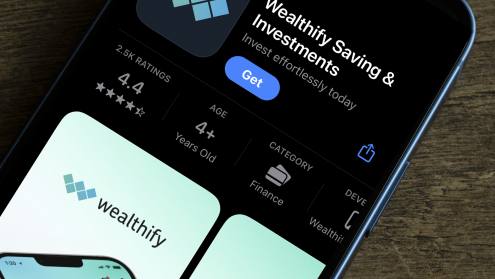Internet stores, on the other hand, can have an unlimited stock because they just store a file on each item that can be downloaded. The limited versus unlimited store therefore changes the dynamics of how sales are made and what is sold.
For retailers, this means that physical stores have to promote only the most popular titles. That is the reason for top 100s. After the next 900 titles, all that is left is old stock on the shelves that cannot be sold. Internet stores such as iTunes, however, will have everything available from Eminem to didgeridoo memories. The view taken is that there is a market for the unusual, the rare and the hard to find, and it costs iTunes nothing to store two million, four million or 10 million songs because they are all online files taking up no shelf space.
The most interesting part of The Long Tail is that even the least popular tracks sell. That is why iTunes and Amazon make half their profits from The Long Tail.
The banking angle
What could this mean for banks? Through mobile payments and prepaid cards, they can include the unbanked (see cover story, page 20). Mobile payments, such as the remittances programme by Citi and Vodafone that won the Innovation of the Year title in The Banker’s Technology Awards this month (see page 25), along with prepaid cards allow people who cannot identify themselves to shift cash around the world. The previously unbanked population can now bank and pay electronically.
Previously the only way to move cash around was either by opening a bank account – which requires anti money laundering, Know Your Customer and Financial Action Task Force identification and verification with a passport, driving licence or other identification – or by using a Western Union account and paying quite a high fee for a low-value transaction.
Now, folks in Kenya, the Philippines, Indonesia and rural farmers in India can pay and move small values of local currency around with a simple text message at a low cost. Equally, anyone can get a Virgin Stash! Card or a MasterCard without any form of identification.
This is banking’s Long Tail.
Many people thought the internet would kill the magazine, the book, the radio and the TV. Instead, it is allowing unending creativity, knowledge and banking to be unleashed, to every individual who can use a computer or mobile telephone.
Welcome to the 21st century.
Chris Skinner is an independent financial commentator (www.balatroltd.com).






